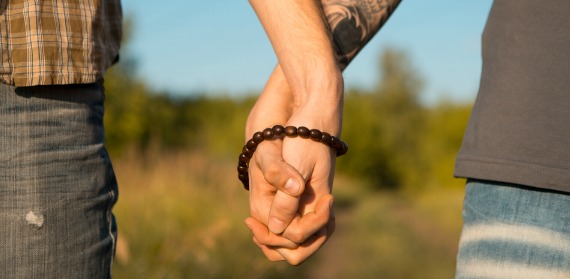How Academia Helped in the Fight for Same-Sex Marriage
Last week, history was made as the Supreme Court ruled for same-sex marriage to be legalised in all fifty states of America. The 5-4 decision ruled that the bans previously in place were unconstitutional under the 14th amendment, which addresses equality and citizenship rights. This momentous turning point follows decades of lobbying from many groups within society, including members of the LGBT community, civil rights activists and – perhaps surprisingly – academics.
Many social psychologists have worked in a number of ways to challenge arguments against same-sex marriage and other issues of equality, lending weight to the cries for equality regardless of sexual orientation. The much-celebrated Supreme Court ruling highlights the ways in which psychologists also have a vital role to play in supporting progressive social change.
So, why is psychological study so useful in cases such as this? One role of social psychologists is to critically examine the arguments against issues such as gay marriage and reveal how they are designed to persuade. This is precisely what Coventry University lecturer Dr Adam Jowett did in 2013, as the public discussion around same-sex marriage in the UK was at its peak prior to becoming legalised. His paper, ‘But if you legalise same-sex marriage…’ examined the ways in which arguments opposing gay marriage were articulated in the British press.
“One of the common arguments articulated by opponents of marriage equality, in the UK, and subsequently during the Irish referendum and the US Supreme Court case, was that marriage provides a framework for raising children and that extending marriage to same-sex couples severs the connection between marriage and child-rearing. Opponents claimed that this would harm marriage as an institution.” explains Dr Jowett. ” The argument appeals to common sense because marriage is widely associated with family in our collective consciousness and when we think of family we typically think of a mother, a father and children.
“However, such arguments lack persuasiveness because they rest on generalities for which plenty of exceptions come to mind. For instance, not all heterosexual married couples can or intend to have children, while many same-sex couples do raise children. Often, opposition to marriage equality is based on belief systems and emotional responses that then require justification. However, in this case, the Supreme Court required a rational basis if they were to continue to deny those in same-sex relationships the constitutional right to marry.
“By understanding how such arguments are designed, social psychologists are able to expose the ways in which the arguments are similar to those used historically to legitimatise other forms of inequality. This makes challenging views such as these easier and can lead to significant legal – as well as social – change”.
Academics within the field of psychology are also active in LGBT rights in a number of different ways. The British Psychological Society (BPS) has a Psychology of Sexualities Section, of which Dr Jowett is a dedicated committee member. The group supported the court case of Celia Kitzinger and Sue Wilkinson in 2005, wherein the lesbian couple attempted to fight for their marriage in British Columbia to be made legal in the UK. Similarly, the American Psychological Association (APA) has also been a strong advocate of same-sex marriage and filed an amicus brief to the Supreme Court on the topic of sexual orientation. This brief, supported by social science research, consisted of four key points:
- Homosexuality is a normal expression of human sexuality.
- Same-sex relationships are equivalent to heterosexual relationships in essential respects, and excluding same-sex couples from the institution of marriage denies them social, psychological and health benefits of marriage.
- There is no scientific basis for concluding that same-sex couples are not fit parents or that children of same-sex couples are any less psychologically healthy and well adjusted than children of heterosexual couples.
- Denying same-sex couples access to marriage is a form of stigma.
While this latest law change in the US is a huge achievement, the fight for LGBT equality certainly does not stop here. As Dr Jowett explains, “Same-sex couples living in States that originally banned same-sex marriage through public ballot will still be living in parts of the US where prejudice against LGBT people is a problem. We also have therapists practising unethical forms of therapy to change people’s sexual orientation, which both the BPS and APA have strongly condemned.”
Dr Adam Jowett is a lecturer in Psychology, with research interests in human sexuality, prejudice andsocial aspects of health and illness. For more information on his work, visit his staff profile.




Comments are disabled